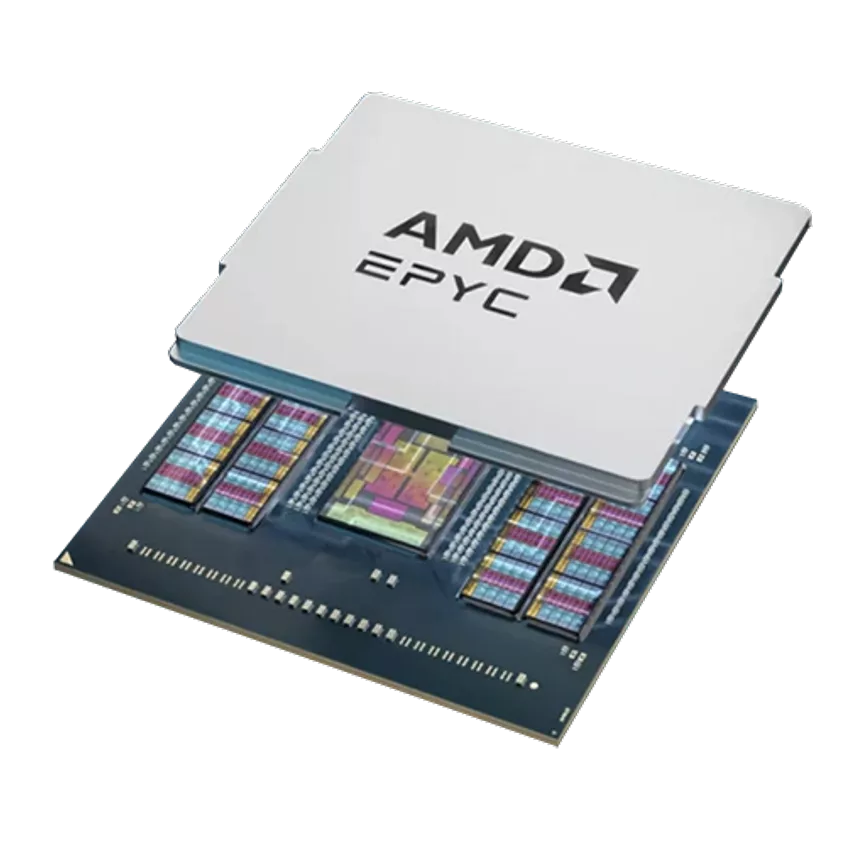AMD EPYC™ 9005: Built for Retail AI Inference
The 5th Gen AMD EPYC™ 9005 processor family offers powerful, cost-effective solutions for AI-powered retail operations. Key capabilities include:
- - Massive server consolidation: Deliver equivalent performance with up to 86% fewer servers.
- - Exceptional inference performance: Ideal for models with up to 13B parameters, image recognition, and recommendation systems.
- - High-frequency models for GPU pairing: Optimized for hybrid AI systems where CPU-GPU collaboration is needed.
- - Advanced security: AMD Infinity Guard ensures multi-layered protection of sensitive customer and business data.


